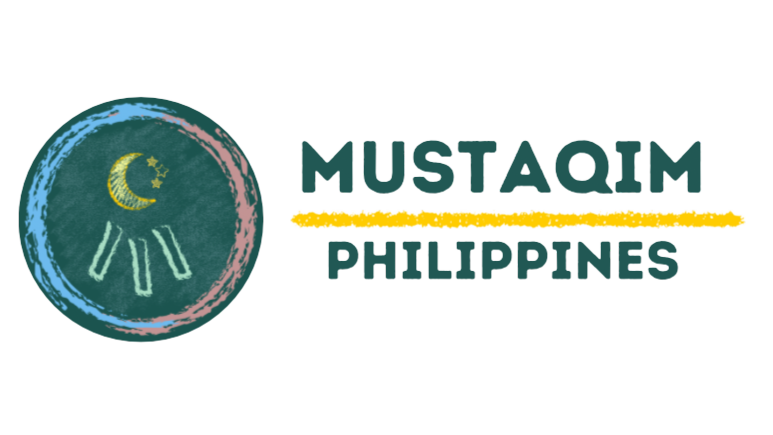Pakistan’s National Counterterrorism Authority (NACTA): National Counter Violent Extremism Policy of Pakistan (NCVEP 2021)
The Dawn News reported that Pakistan’s national coordinator Mehr Khaliq Dad Lak presented the draft National Counter Violent Extremism Policy of Pakistan (NCVEP 2021) on December 14 to Pakistan Interior Minister Sheikh Rashid Ahmed for approval.
Before finalizing the draft, the NACTA said it held provincial consultations with representatives of various segments of society, including academics, journalists, experts and members of civil society, in the past three months.
More than 250 relevant contacts and stakeholders from federal and provincial governments were engaged for their valuable contribution and inputs to the policy. This was in addition to three months of hard work by researchers and experts presently serving in Nacta who worked on the draft.
The draft NCEVP 21 comprises two parts. The first part is the NCVEP 2021 itself while the second part is the national implementation and institutionalization plan of the policy that clearly mentions the roles and responsibilities of various implementers and their supporting stakeholders along with key performance indicators under policy targets.
The NACTA believes the draft NCVEP 2021 is a major national policy document that would keep on evolving and improving with the passage of time.
Source: https://www.dawn.com/news/1663850
Collaboration is Key on PCVE
Modern Ghana News reported for many years now, violent extremism and terrorism have been a major threat to the peace and stability of states around the world. According to the 2020 Global Terrorism Index (GTI) , 63 countries recorded at least one death from terrorists attack in 2019.
In the West African sub-region, various terrorist organizations have succeeded in expanding their recruitment schemes, radicalizing people to engage in domestic acts of terrorism in Mali, Burkina Faso, Nigeria among others.
Even though state security agencies have been at the forefront of the fight against violent extremism, the role of civil society in the effort to prevent violent extremism cannot be over-emphasized.
As part of efforts to complement the government’s interventions to keep Ghana safe from violent extremism and terrorism, the United Nations Development Programme (UNDP) has engaged Civil Society Organisations (CSOs) and relevant state institutions to build synergies for the prevention of violent extremism.
The engagement with CSOs is particularly significant as their knowledge of local drivers of extremism and close interaction with community members can be leveraged to guide policies and actions both at the local and national levels to keep communities safe.
Highlighting the important role of CSOs in preventing violent extremism, the Peace & Governance Analyst of UNDP Ghana, Ms Melody Azinim called for a stronger collaboration among CSOs to leverage their credibility and access within high-risk communities to counter extremist ideas.
‘’There are complex vulnerabilities in many communities that require urgent attention. Therefore, forging partnerships with civil society is critical in addressing these vulnerabilities and building resilient communities against violent extremism’’, Ms Azinim noted.
The engagement, which brought together 30 stakeholders from across the country, was the climax of a series of engagements in border communities along major boundary zones in Ghana.
For Theodora Anti of the Foundation for Security and Development in Africa (FOSDA), engagement between CSOs and relevant state institutions will help strengthen collaborations for violent extremism prevention.
‘’This engagement has been very insightful for me. I have gained a deeper understanding of the national framework for the prevention and countering violent extremism. I am looking forward to playing a role with other stakeholders to ensure its effective implementation’’, stated Ms Anti.
Abraham Korbla Klutsey, the Executive Director of Youth for Peace and Security Africa (YPSA) noted, ‘’the engagement has afforded me an opportunity to learn from the experiences of other CSOs and I have even started conversations with colleagues to explore potential areas of collaboration to strengthen our efforts towards keeping our country safe’’.
Beyond recognizing the threats of extremist groups, it is worth noting that preventing violent extremism requires the collaboration and cooperation of all stakeholders at all levels. Therefore, continuous engagement such as these among key actors will be the defining factor in the fight for the peace and stability of Ghana.
Source: https://www.modernghana.com/news/1117653/partnerships-is-key-to-preventing-violent-extremi.html
Simulation Game Under Development to Prevent Extremist Recruitment in Schools
Middlebury Institute of International Studies, United States reported that researchers of their Center on Terrorism, Extremism, and Counterterrorism (CTEC) will partner with the game company iThrive Games Foundation on a two-year project funded by the Department of Homeland Security for preventing and countering violent extremism (PCVE)
Said project will focus on the development of a new simulation game and curriculum designed to build resilience among adolescents and give them the tools to recognize and reject overtures from violent extremist recruiters. CTEC will combine its world-class expertise in how radicalization impacts digital and real-world communities with iThrive’s experience in designing meaningful and transformative experiences, with and for teens. They believe the end product will fill an increasingly important need in the US education system.
According to CTEC researchers, extremist recruiters are well-aware that an adolescent’s need for social connections, status, and belonging can be exploited in the radicalization process. The social needs of adolescents, as well as the development of the brain itself combine to create a “perfect storm” of both vulnerability and opportunity for building resilience.
According to the research team, the plasticity of the adolescent brain makes them more vulnerable to negative influences, but it also makes them more receptive to positive inputs. Education initiatives that create genuine engagement, offer challenging, relevant, and respectful content, and social and emotional skill building can create resilience and resistance to recruitment.
The researchers saw that both the need and opportunity for programs on PCVE were great in U.S. middle and high schools. The few programs that do exist often focus disproportionately on Muslim students and may not incorporate monitoring and evaluation steps, they noted.
Collaborating with the Newton, Massachusetts-based iThrive Games, CTEC will build the new program on the iThrive Sim platform. The web-based, role-playing simulations of this platform are designed to deeply engage students with rich content, storylines, and each other. It’s a type of experiential learning wherein players assume specific character roles and use both predetermined plot points and improvisation to interact with each other and solve problems within the context of realistic scenarios.
As students play, they’ll encounter source documents, contextually grounded news stories, memos, photos, and social media content that is both prepopulated and written by fellow players. Students use this information to fuel their real-time interactions with fellow players and to make decisions that move the scenario forward.
The research team believes input from the target audience—middle and high schoolers—was essential for creating an effective product. They plan to partner with students and educators at three secondary schools in California, New York, and Vermont during the design and implementation phases of the project.
“Curricular surrounds” will provide important context to help students transfer what they learn from the game into their own lives. These might include character profiles, important background information, and discussion prompts to enrich the learning experience. The researchers hope the surroundings will offer a jumping off point for meaningful reflection in discussions and activities following the simulation.
Reference: https://www.middlebury.edu/institute/news/middlebury-institute-team-will-develop-game-counter-extremist-recruitment-schools
Interfaith Dialogue During the Challenging Times - Mindanao Week of Peace
On December 1, the Mindanao State University (MSU) Mindanao campuses, in partnership with the Equal Access International - Philippines, conducted a seminar dubbed “Interfaith Dialogue During the Challenging Times” as part of the celebration of the Mindanao Week of Peace.
The speakers during the dialogue are Dr. Hamid Barra, BARMM Minister of Human Settlements and Development who discussed about the values of interfaith dialogues in Islam; Msgr Edwin Dela Pena, Bishop Prelate of Marawi, who discussed about human fraternity – an interfaith convergence of peace; Dr. Jayeel Cornelio, Associate Professor and the Director of Development Studies Program of the Ateneo De Manila University, who provided a talk on Filipino religiosity and peace; and Dean Macrina Morados of the UP Institute of Islamic Studies, who provided a lecture on gender and peacebuilding in the Islamic perspective.
At Mustaqim, we hope that these engagements continue and inspire other peace advocates to replicate the same efforts on peace and nation building.
Mindanao Week of Peace
The Interreligious Solidarity for Peace (ISP), which is a unity of communities belonging to the Muslim, Indigenous People, and Christian (Catholic, Protestant, Evangelical) faith will be celebrating the Mindanao Week of Peace 2021 from November 25 to December 2, 2021 with the theme “Peace: Compassion and Justice, Resilience and Healing for All”.
The Mindanao Week of Peace 2021 will be composed of several activities and seminars for civil society organizations (CSOs), youth and Barangay leaders, and members of the community. These activities will include healing sessions, peace forums and interfaith dialogues, and the coming together of fraternities and sororities to solidify commitment in sustaining peace advocacies even after the celebration. The highlight of the Mindanao Week of Peace is an agreement through peace covenant signing that will allow members to go for peace education fellowship, integrate interreligious solidarity programs, environmental causes for peace, and food security.
BARMM - Launching of Educational Financial Assistance Program 2021
On October 29, 2021, the Bangsamoro Autonomous Region of Muslim Mindanao (BARMM), through the Bangsamoro Youth Commission (BYC) and the office of Sangguniang Kabataan (SK) Chairman Hon. Hja. Jobeleen Sakilan Abdulahab of Barangay Kajatian, successfully conducted the awarding ceremony of Educational Financial Assistance Program (EduFAP) worth P1,500.00 each to 70 qualified Senior High School students in different respective school on October 29, 2021 at Sulu Provincial Women's Council (SPWC), San Raymundo, Jolo, Sulu.
In the program, the Bangsamoro Youth Commission (BYC) Sulu enlightened the youth on its mandate as the primary policy-making and coordinating body in all matters affecting youth offering various interventions.
BYC Commissioner Mohammad Faizal encouraged the youth to continue pursuing their dreams no matter how challenging things would be.
“We define success differently as it depends on the dream we want to achieve. There is no shortcut in attaining it, but what’s more important is we know the path we are following,” Commissioner Faizal said.
Educational Financial Assistance Program (EduFAP) is an initiative of the Sangguninang Kabataan of Barangay Kajatian under the leadership of SK Chairman Hon. Hja. Jobeleen Sakilan Abdulahab which aims to support the students in their studies. (BYC PR Section)
We would like to congratulate all the recipients of the Educational Financial Assistance Program and encourage the members of the youth to study hard and be the future leaders of our nation.
Source: BYC website
Training on Vulnerability and Risk Assessment and Mapping (VRAM) in Jolo, Sulu
From October 31 to November 2, 2021, the Maranao People Development Center (MARADECA) Inc. in partnership with Bangsamoro Autonomous Region and Muslim Mindanao (BARMM), Unicef for every child, World Food Programme (WFP), United Youth of the Philippines - Women Inc. University of the Philippines, and the VSO conducted the 3 days training on Vulnerability and Risk Assessment and Mapping (VRAM) at Notre Dame Review Center, Barangay Bus-Bus, Jolo, Sulu.
VRAM ensures inclusive and risk-informed and shock-responsive social protection resulting in more resilient communities in the BARMM. The main purpose of said training is for the attendees to be able to enumerate vulnerable households in the community, know who are the most vulnerable and why they are vulnerable. Said data will be used to help the host organizations to know and prioritize targets for assistance and development.
The VRAM will be done in the Municipalities of Jolo, Indanan, Pata, Luuk, Omar and the Municipality of Patikul. This program was in proper coordination with the Ministry of Interior and Local Government and the Local Government Unit.
Leaders of the ASEAN Vowed to Strengthen Cooperation
The Association of Southeast Asian Nations (ASEAN) on October 14, renewed their vow to strive to prevent and combat transnational crime and violent extremism.
The Manila Bulletin reported that in a virtual meeting of the 15th ASEAN Ministerial Meeting on Transnational Crime (AMMTC), DILG Secretary Eduardo M. Año disclosed that the ASEAN members saw the need for law enforcement officials of the region to be more vigilant, adaptable and flexible in addressing the new and emerging transnational crime trends in the post-COVID-19 landscape.
Secretary Año said: “Let us continue to strengthen our bonds and unite our actions in addressing all forms of transnational crimes. Let us remain committed to realizing our overarching vision of a united ASEAN where its peoples can proudly proclaim that we care, we prepare, we prosper”.
In a joint statement during the meeting which was hosted by Brunei Darussalam, the ministers adopted the Bandar Seri Begawan Declaration which declared to enhance cooperation among ASEAN law enforcement units dealing with transnational crime through the exchange of information, experiences and good practices on new methods and modus operandi, and in the implementation of the regional action plans and work plans.
Secretary Año said the 15th AMMTC also committed to explore modalities to promote practical cooperation among ASEAN law enforcement agencies, such as through table-top exercises, field training exercises and coordination, to further enhance their capacity and capability in responding to new and emerging challenges posed by transnational crime.
He added that the ASEAN ministers also pledged to pursue stronger border management cooperation to prevent criminal groups from taking advantage of the pandemic situation via illicit drug trafficking, trafficking in persons, smuggling of goods, people and weapons, forgeries of identification, health certificates and travel documents.
During the three-day event, Año noted that the continued prevalence of the COVID-19 pandemic has presented new challenges in how ASEAN member countries conduct their affairs.
“The continued discussions to jointly address transnational crimes amidst the current situation further manifests the importance of the 15th AMMTC and its instrumental role in nurturing our amity towards establishing a harmonious and progressive ASEAN community,” he added.
The 15th AMMTC and its related meetings was attended by AMMTC Leaders and Senior Officials Meeting on Transnational Crime (SOMTC) Leaders from ASEAN member countries including Brunei Darussalam, Cambodia, Indonesia, Lao PDR, Malaysia, Myanmar, Philippines, Singapore, Thailand, Vietnam, and ASEAN Secretariat. Also in attendance were AMMTC and SOMTC Leaders from dialogue partner countries namely China, Japan, and Korea.
In the country report during the 15th AMMTC, Secretary Año affirmed that the Philippine government remains steadfast in its serious effort and commitment as the lead shepherd against trafficking in persons (TIP) as proven by its Tier 1 status in the 2021 US TIP Report for the sixth consecutive year.
Reports from the Inter-Agency Council Against Trafficking (IACAT) noted 93 TIP convictions, with 86 traffickers convicted from January to December 2020 alone.
Of these convictions, one was on labor trafficking, 34 on online or cyber-sex trafficking and pornography, and 58 on prostitution and sexual exploitation.
The IACAT also recorded 26 TIP convictions with 29 persons from January to June 2021 which was aggregated as follows, three for labor trafficking, six for online or cyber-sex trafficking and pornography and 17 for prostitution and sexual exploitation.
Año stressed that the continuous efforts of the Armed Forces of the Philippines (AFP) and the Philippine National Police (PNP) led to the voluntarily surrender of over 300 members of Local Terrorist Groups composed of DAESH-inspired personalities under the Daulah Islamiyah consortium and Bangsamoro Islamic Freedom Fighters.
According to Arabic translator Alice Guthrie, “D.A.E.SH is a transliteration of the Arabic acronym formed of the same words that make up Islamic State in Iraq and Syria (I.S.I.S) or ‘al-dowla al-islaamiyya fii-il-i’raaq wa-ash-shaam’.
The DILG chief added that a total of 1,539 barangays have been reached by the department’s whole-of-nation approach on Preventing and Countering Violent Extremism (PCVE).
Source: Manila Bulletin
Do not Stand and Die Upon that for Which the Violent Extremists Died
The ISIS published article “Stand and Die Upon That for Which Your Brothers Died” dangerously talks about the false martyrdom of violent extremists concealing themselves in the guise of being true Muslims. In this article, the ISIS claims that Allah has ordained the killing of the non-Muslims and the apostates and that this is not punishable as long as it proceeds with tawhid and the Sunnah. This article also claims that Allah preserves His religion however He wills and that the death of one person cannot damage the religion.
Let us look at the discussions closely and provide a clear understanding and narrative as to why we should not stand and die upon that for which the violent extremists died.
To die a martyr or Shaheed in Islam is one of the greatest honors that a Muslim can gain. The rewards granted to a martyr are far more superior compared to the rewards for performing almost any other righteous act. A martyr is given special favors and privileges from Allah. But being a Shaheed is only applied to those who sacrifice their lives for Allah's cause.
Now, in order to earn the title of Shaheed, one must have the correct Niyat or intention, and action. These two components shall not be separated from each other to become a Shaheed. In order for intentions to be considered as correct in the eyes of Allah, the action must always be in line to the teachings of Islam. A Shaheed has no desire to die for the sake of escaping life. A Muslim should want to continue living and never even wish he was dead because his life could serve the purpose of Allah and he could continue doing good deeds. Muslims generally love life. The loss of life and bloodshed are not the goals of a Muslim and not, in any way, the aim of Islam.
Violent extremists believe that in order to die as a Shaheed, one must raise a sword, stand in the front lines of a battle, and fight to the death. Terrorists bestow the title of Shaheed to all their comrades and leaders who died for their cause including those who blew themselves up in suicide bombing. Little do they know that good intentions should also follow good actions. The killing of oneself through suicide bombing or any other violent means is clearly prohibited in Islam. We all know that the intentions of violent extremists and terrorists are for the pleasure of Allah. However, their intention should also be translated into good actions. Fudayl ibn ‘Iyad, said, “Allah purifies good deeds and makes them correct. Indeed, if deeds are sincere and incorrect, they will not be accepted. If deeds are correct and insincere, they will not be accepted. Rather, they are only accepted if they are both sincere and correct. Sincere means they are done for Allah alone and correct means they are done according to the Sunnah”.
The Prophet once said to his companions, “Do you know who is bankrupt?” They said, “The one without money or goods is bankrupt.” The Prophet said: “Verily, the bankrupt of my nation are those who come on the Day of Resurrection with prayers, fasting, and charity, but also with insults, slander, consuming wealth, shedding blood, and beating others. The oppressed will each be given from his good deeds. If his good deeds run out before justice is fulfilled, then their sins will be cast upon him and he will be thrown into the Hellfire.”
Unlike what the ISIS article clearly did, Muslims should not judge dead people whether they will enter hell-fire or paradise. Rather, Muslims should judge them based on their actions. Muslims know that violent extremism, suicide bombing and killing others are all great sins in Islam and that is clear. Violent extremists who died leading violent acts shall be condemned and shall not be tolerated. Giving them the title of Shaheed is not only inappropriate, but also a disgrace for honorable Muslims who were given this accolade.
Muslim had narrated that the Prophet said: “Verily, the first people to be judged on the Day of Resurrection will be a man who was martyred. He will be brought, the blessings of Allah will be made known, and he will acknowledge them. Allah will say: What did you do about them? The man will say: I fought in your cause until I was martyred. Allah will say: You have lied, for you fought only that it would be said you were brave, and thus it was said. Then, Allah will order him to be dragged upon his face until he is cast into Hellfire.”
Finally, the above only means that not all who died fighting shall be regarded as Shaheed. It is clear that only those who fight in accordance to the teachings of Islam and with both good intention and action are the true Shaheed.
Violent extremism and terrorism are not in line to the principles of Islam. Thus, we call on our fellow Muslim brothers to not stand and die in the path of violent extremists because this is not true martyrdom. Their deceit taints the true meaning of our religion and puts a shame into the beliefs and principles that we hold dearly.
Amina Rasul: The Role of Women Peacebuilders
Amina Rasul-Bernardo, the President of the Philippine Center for Islam and Democracy and one of the leading FIlipino Muslim leaders working to strengthen peace and development in the country, shared an article she wrote with Minda News about She Talks Peace podcast which highlights the role of women peacebuilders around the world. Below is the unedited article by Ms. Rasul-Bernardo:
Salam! I hope all of you are coping well with COVID-19. Stay strong and healthy because Mindanao hasn’t seen the worst yet. Tokyo’s Nikkei Asia (a financial magazine) recently came out with its latest COVID-19 Recovery Index. The Philippines is No. 121 out of 121 countries. Can the government do a better job to counter this pandemic? Thus far, it seems to have dealt fairly well with Metro Manila – vaccinations, masking mandates, strategies to keep people safe in public spaces, partnerships with the private sector, lockdowns. How about outside Metro Manila?
I have been “imprisoned” at home since March 2020. Meetings, conferences and training workshops have all been virtual. Unable to travel, a friend suggested that I should start a podcast. Researching about podcasts, I found out that it is a fast-growing communications vehicle. Podcasting gives a voice to the voiceless while amplifying important conversations on issues that need to be addressed such as women in peace. Moreover, using audio is a great way to communicate complex ideas. Better still, listeners can tune in anytime they have time – while having coffee, eating durian or marang, travelling, jogging, cooking, etc.
Thus, She Talks Peace podcast was born.
She Talks Peace is a podcast that highlights the role of women peacebuilders around the world in bringing lasting peace and security to their communities. Each podcast episode aims to provide informative and engaging platform for the public to know the stories of women peacebuilders – from the Philippines to Yemen, from Indonesia to Afghanistan, from Malaysia to Nigeria; their dreams and their hopes for a world without violence and a world where every woman and girl can be whoever she wants to be.
I moderate the podcast together with Dina Zaman, a Malaysian journalist and co-founder of IMAN Research. Our launch was on August 8, the 54th Anniversary of ASEAN. Our guests were former Foreign Secretary Delia Albert and Indonesian Ambassador Artauli Tobing, two women who broke thru the glass ceiling of diplomacy and strong advocates of women empowerment. Our conversation was not just enlightening, it was peppered with interesting personal anecdotes about the founding fathers of ASEAN. An episode on the realities of working in Afghanistan was particularly timely, as we talked with Dr. Evangeline Cua who is with Doctors Without Borders in Kunduz City, Afghanistan. Why would a Filipina doctor from Samar stay in Afghanistan when Kabul had fallen, you might ask. For the answer, you can listen to Dr. Cua. We have released 12 episodes, hosted by Podcast Network Asia and available on Spotify and Apple Podcasts.
In our latest episode, we had a fascinating but sobering discussion on modern day slavery with Susan Ople, a well-known champion of migrant workers, and Adrian Pereira, a Malaysian advocate against trafficking.
In Mindanao, human traffickers have a field day recruiting from our conflict-affected, poor community and smuggle the recruits through the Zamboanga-Tawi-tawi route to Malaysia and other places. More and more women are being recruited. Both Susan and Adrian are lobbying for government to do more. I wonder if the Bangsamoro Autonmous Region in Muslim Mindanao has focused attention on this pernicious problem.
Do listen to the fascinating conversations with these fearless advocates, starting with Delia Albert and Artauli Tobing in Episode 1.
Meanwhile, let us bask in the international accolade heaped on Maria Ressa, Nobel Peace Prize Awardee for 2021, sharing this coveted award with Russian Journalist Dmitry Muratov. We at the Philippine Center for Islam and Democracy (PCID) congratulate her and Mr. Muratov, who were chosen “for their efforts to safeguard freedom of expression, which is a precondition for democracy and lasting peace.”
Maria Ressa has been a valuable resource of PCID in our conferences on a just peace and the prevention of violent extremism, reliant on the strengthening of resilience and democracy at the community level, thru human rights-based interventions.
As Muslims in the Philippines face a global resurgence of extreme fundamentalist interpretation of Islam, effectively propagated thru social media by ISIS and its affiliated terrorist organizations, her fact-based analysis on how social media is being used to spread fake news and manipulate public discourse is valuable to our efforts to counter online radicalization of Muslims, particularly the young.
At Mustaqim Philippines, we encourage our fellow peacebuilders to support the She Talks Peace podcast. Here are the links to listen to the podcast:
Spotify: https://open.spotify.com/show/3857UmsCQ1h5GbHEiVtMhk?si=cPmPaLU0Qhq4VVfTeTRLQQ&nd=1
Apple: https://podcasts.apple.com/ph/podcast/she-talks-peace/id1579999446










